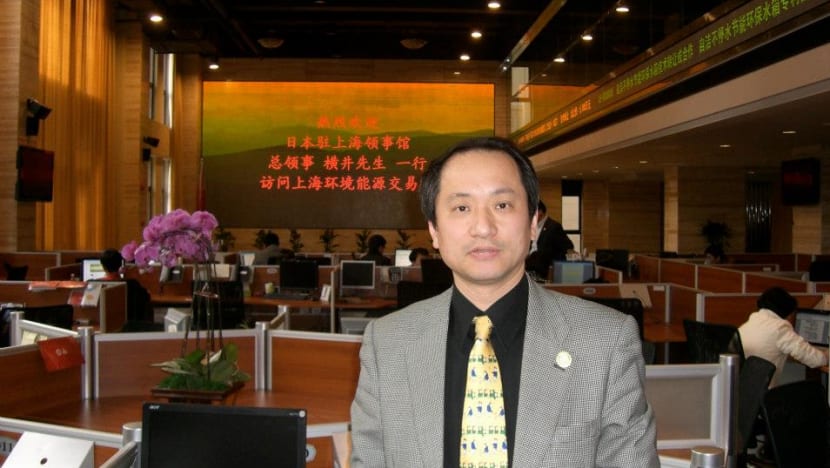Japan ‘closely monitoring’ case of Tokyo-based Chinese academic who went missing while in China
Professor Fan Yuntao returned to China in February last year and subsequently became unreachable, according to Japanese media reports.

Mr Fan Yuntao, a Chinese national and a professor at Japan’s Asia University, returned to his home country in February 2023. (Photo: Facebook/yuntaof)

This audio is generated by an AI tool.
SINGAPORE: Japan says it is "closely monitoring" the case of a Tokyo-based Chinese academic who reportedly went missing last year after returning to China, in the latest of several similar incidents in recent years.
Mr Fan Yuntao, a Chinese national and a professor at Japan’s Asia University, returned to his home country in February 2023 and subsequently became uncontactable, according to Japanese media reports. He was scheduled to return to Japan by the start of the new semester in April that year but failed to do so.
Kyodo News reported citing unnamed sources that before going missing, Mr Fan told people around him that he was asked to accompany authorities for interrogation, adding that he may have been detained.
In a press conference on Monday (Apr 22), Japan’s Chief Cabinet Secretary Yoshimasa Hayashi acknowledged the reports on Mr Fan’s disappearance and said the government was keeping a close eye on the issue.
"This is a matter that could be related to the human rights of the professor, who has been engaging in education at a Japanese university for years," Mr Hayashi added.
He declined to elaborate further on the matter, citing its sensitive nature, Kyodo News reported.
Mr Fan, 61, specialises in international law and political science, according to his academic profile on Asia University’s website.
In a statement on Monday, the university announced that the professor was currently on a “leave of absence” and “sincerely hopes” that he will return to work soon.
Chinese Foreign Ministry spokesperson Wang Wenbin said at a daily press briefing on Monday that he “does not have information on that” when asked whether the ministry knows Mr Fan’s whereabouts.
SIMILAR CASES HAVE SURFACED
Mr Fan is not the first Chinese academic based in Japan to go missing after returning to China.
Last month, it emerged that Hu Shiyin, a professor of Chinese literature and linguistics at Kobe Gakuin University, has been missing since his trip home in August last year. He had told his employer he would be making a short trip to China and return to Kobe before the start of the autumn semester classes.
But Kobe Gakuin University said on Mar 18 that it had not heard from Mr Hu since he left, Japanese media reported. The professor’s family in Japan told the university in late September last year that they had not heard from him.
In 2019, Professor Yuan Keqin of Japan’s Hokkaido University of Education vanished after travelling to China for a family funeral. China’s foreign ministry later said he had confessed to spying and was in custody.
And in 2013, Professor Zhu Jianrong of Tokyo’s Toyo Gakuen University was detained by Chinese authorities, also after going missing on a trip home. Believed to have been under investigation for alleged espionage, he was reunited with his family in Japan about half a year later.
Related:
NATIONAL SECURITY DRIVE
The latest case involving Mr Fan comes amid a drive by Beijing to strengthen national security. China approved a wide-ranging expansion of its anti-espionage law last year, its first update to the legislation since 2014.
“The law broadens the scope beyond what it originally sought to prohibit - leaks of state secrets and intelligence - to include any ‘documents, data, materials, or items related to national security and interests’,” noted Ms Marina Yue Zhang of the University of Technology Sydney in an article published by The Conversation in September 2023.
“From an individual standpoint, anyone with foreign affiliations, including those who have returned from overseas, feel as if they are on a kind of community ‘watch list’ upon arrival in China,” she added.
China has stressed that the revised law does not broaden the scope of espionage activities. Instead, it defines the definition of activities and draws a clear line between legal and illegal activities, officials said in March.
Authorities have also out hit back against criticism, saying they oppose any attempts to attack China’s business environment by misreading the legislation.













